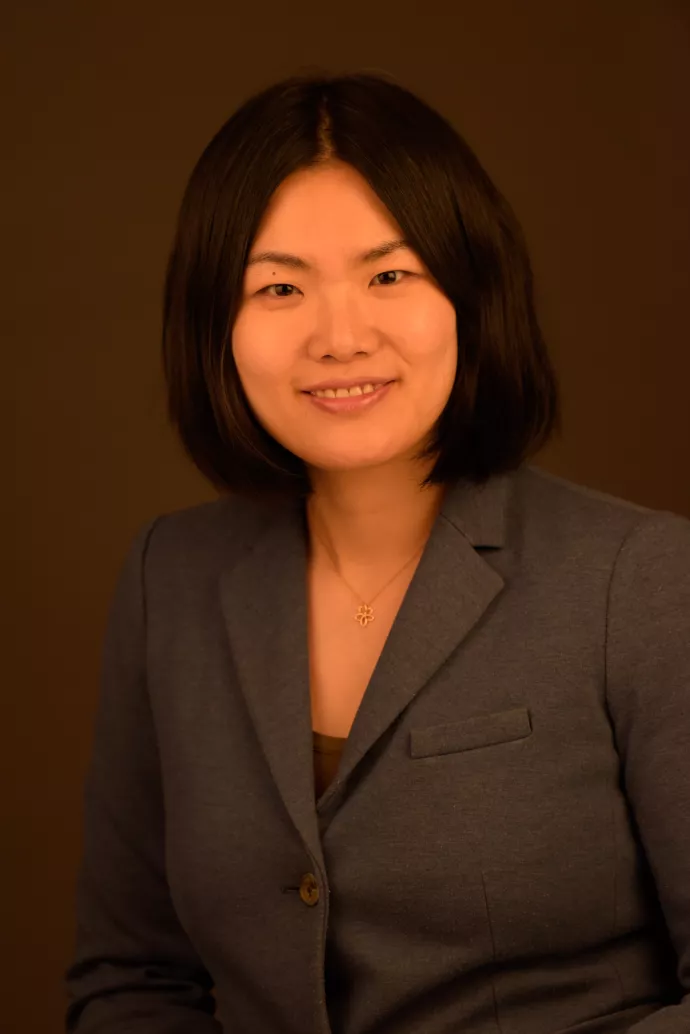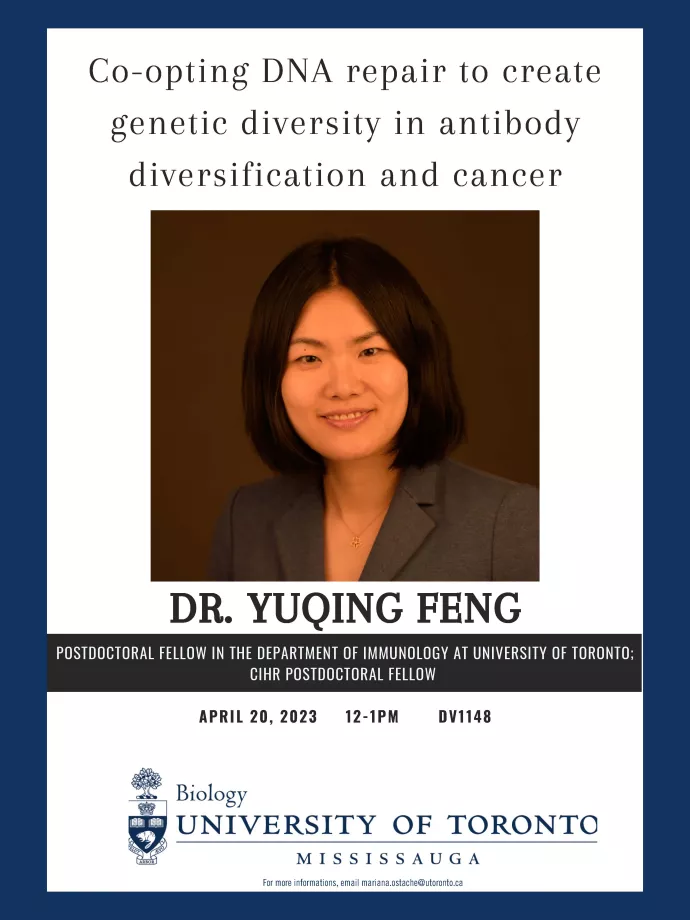
Invite to Dr. Yuqing Feng' Seminar, April 20, 2023
You are invited to Dr. Yuqing Feng Seminar, Postdoctoral fellow in the Department of Immunology at University of Toronto; CIHR postdoctoral fellow
When: April 20th, 2023
Time: from 12-1pm (light snack will be provided)
Where: DV1148
Co-opting DNA repair to create genetic diversity in antibody diversification and cancer
Recording
Brief Abstract:
Genetic lesions caused by DNA damage have deleterious consequences to genome instability. Yet, the uracil lesions created by the AID/APOBEC3 family of cytidine deaminases benefit the vertebrate immune system by creating gene diversification. Antibody affinity maturation and class switching are critically required by the immune system to produce high-quality antibodies to clear pathogens. AID initiates both processes by deaminating cytosines to uracils within the immunoglobulin genes. AID-induced uracils are recognized and processed by subverted base excision and mismatch repair pathways that ensure a mutagenic outcome in B cells. FAM72A was recently identified as a major determinant for the error-prone processing of AID-induced uracil lesions by disabling base excision repair. As FAM72A overexpression was observed in multiple cancer types, we found that FAM72A expression correlates with higher total mutation burdens in cancers, and high FAM72A expression is associated with poorer survival in several cancer types. These data suggest a model that by disabling base excision repair, FAM72A allows genomic uracil lesions to be preserved as mutations, and therefore plays a role in propagating the mutagenic effects caused by spontaneous cytosine deamination or AID/APOBEC3-mediated deamination during cancer progression and tumor evolution.
Brief Biography:
I received my undergraduate degree from the University of Saskatchewan, Saskatoon, Canada, majoring in Biochemistry. I received my Ph.D. degree from Dr. Linda Chelico's lab at the University of Saskatchewan in 2017. During my Ph.D., I worked with APOBEC3 enzymes from the AID/APOBEC3 family of cytidine deaminases and biochemically characterized APOBEC3 enzymes as host innate immune restriction factors against RNA viruses and retrotransposons. I moved to Toronto and started my postdoctoral fellowship at Dr. Alberto Martin’s lab at the University of Toronto since 2018, where I worked on DNA damage and repair mechanisms in B cells.

